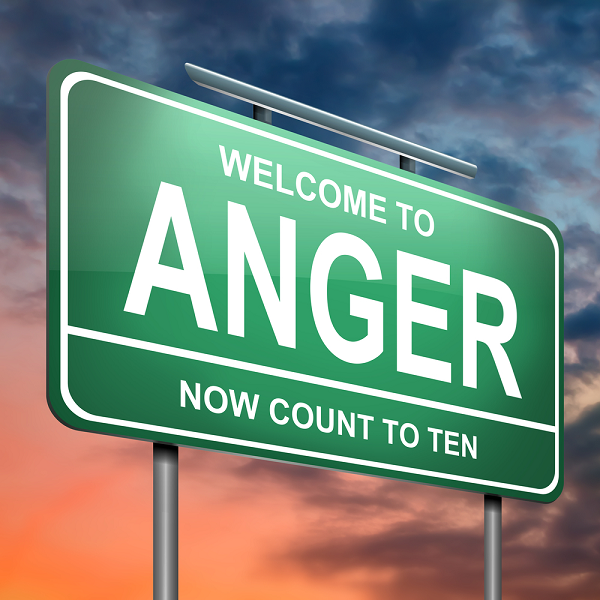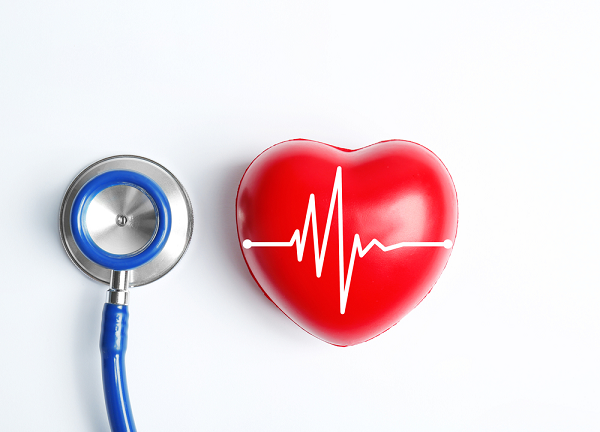Let’s Talk about Anger
Stacey J. Drubner, JD, LICSW, MPH

EAP Ask the Expert: John Herman, MD, Associate Chief, Department of Psychiatry, MGH & Medical Director, Employee Assistance Program, MGB
If you live on Planet Earth, you have observed anger. It’s everywhere – on full view – in air travel, the roads and in healthcare. Maybe you have experienced an increase in anger yourself. The data confirms our suspicions:
- Even before the Pandemic, an NPR-IBM Watson Health Poll showed that Americans are angrier than a generation ago.
- On a related note, the 2024 World Happiness Report, has the United States dropping out of the top 20 happiest countries.
- According to the Zebra, in 2023, 92% of those surveyed reported witnessing an act of road rage in the past year.
As is the case with its close relative stress, anger is not always a bad thing. It can be a productive response to protect or motivate us as needed. For example, anger can help you heal and move on from a negative situation. Productive anger can be accessed via the flight or fight response, we have referenced in previous features. This utilizes the body’s physiological reaction to stress or danger to help us react to external circumstances.
Most of the incidents we see on the news or on social media are examples of unhealthy anger. The flight or fight response is not functioning appropriately. In order to better understand and manage unhealthy anger, we turned to MGH Psychiatrist and EAP Medical Director, Dr. John Herman.

Societal Factors related to Anger
Why is everyone so angry? There are a variety of factors that have created a perfect storm for increased stress and anger. A good portion of this can be attributed to changes in how we interact with each other. John sees a more transactional culture with different priorities around connection. Historic societal values are in flux. Ways to reinforce and build relationships are severely eroded. Isolation and division are two societal developments which seem to indirectly feed this increase in anger.
Isolation
The Pandemic, social media and the rapid development and use of technology are all contributing factors to greater human separation and loneliness. John points out that despite their innovation and convenience, platforms such as Zoom cannot duplicate the bonding and work that is done in the time before and after in-person meetings. Moreover, there are inter-generational divides with regards to our knowledge base and technology use. All of the above translates into a situation in which we don’t have the same type of access to our supports and the ability to reinforce healthy relationships and interactions.
Division & Polarization in Society
We are increasingly divided politically and philosophically. This has resulted in a departure from long accepted “rules of engagement” in which we discuss and tolerate differences and learn from each other. This is reinforced by the tendency of some to rely on inaccurate or single news sources, resulting in an echo chamber in which ideas are not disputed. A recent EAP Feature discussed how to improve workplace etiquette and conversation in light of these divides.

Individual Factors related to Anger
Most of us are angry at times, but there are certain factors which might make some people more vulnerable to or pre-disposed to anger. Understanding what might be going on behind the scenes is a vital step towards addressing anger.
Mental Health
Historical and current challenges with mental health and substance use can impact anger and resolution of anger, particularly with:
- Depression
- Anxiety
- Trauma & PTSD
- Alcohol misuse
Other Medical Issues
Certain medical conditions or side effects from medications may also cause anger. A few examples include:
- Neurological diagnoses, such as dementia or delirium
- Menopause or other hormone issues
- Thyroid imbalances
Family Culture

Families have different norms around how they communicate or express/are permitted to express anger and resolve disagreements. Some families don’t discuss conflict at all but for others, it’s “normal” to talk about everything and have heated arguments. Many of us carry these norms into relationships outside the family and this can impact how we react and cope. Having an understanding of your family history can help you to be mindful of how that effects your behavior and how you want to interact with others.
External Triggers
Anger can be based on legitimate or invalid reactions to external things. In John’s practice, one of the most significant interpersonal causes of anger he sees is betrayal (broken trust or expectations). This is followed by driving almost anywhere in Massachusetts or being a Boston sports fan. Once again, awareness of your sensitivities is step 1 for controlling your emotions.
When is Anger is a Problem?
Unchecked anger can have negative impacts on many areas of our lives.

Relationships
Even those who love and care about us have their limits in coping with our anger. If outbursts are too frequent or too severe, you may push loved ones away.
Health
As we discussed in last month’s feature, the mind-body connection is powerful. Clearly stress (of which anger is an indicator), can lead to poor physical and mental health outcomes, in areas, such as:
- Cardiac
- Gut
- Sleep
- Cognition
- Depression & anxiety

Legal and other Consequences
We are at a point in society where aggressive behavior is less tolerated. For example, MGB recently established a code of conduct for patients. Unchecked anger with worse behavior can lead to problems with:
- The law – due to violence, threats, or physical altercations
- Work – interpersonal issues, corrective action, job loss
- Social or retail environments – being removed as a patron
Preventing Problematic Anger
The best way to deal with negative anger is to prevent it from happening in the first place. This is easier said than done and requires practice and a multi-pronged approach. Here are some suggestions:

Practice a Healthy Lifestyle
We talk about this often in our features on well-being. It’s not meant to be preachy, but the data shows that practicing a healthy lifestyle provides an important foundation for preventing and easing stress. Here are a few resources:
- Sleep
- Exercise
- Yoga
- Meditation
- Nutrition
- Social connection
- Daily gratitude/appreciation
- Reduction of unhealthy behaviors, such as using substances to cope
Identify your Anger Reaction Type
- Internalizing
- Externalizing
- Passive – aggressive
This may be helpful in cases where how you express or don’t express anger might be counter-productive for you.
Learn to Understand your Triggers
What are your stressors, reactions, and defenses?
What types of things tend to bother you – loud talkers, gum chewing, aggressive drivers?
What happens in your body before or while anger is building? Awareness of these important warning signs allows you to respond more thoughtfully before things reach full-blown anger or a reaction which you might regret.
- Rapid heart rate
- Tightened jaw
- Head pounding
- Pacing
- Nausea
- Hunger
- Exhaustion
Don’t Suffer in Silence
- John offers that there are benefits to productively sharing and discussing your triggers with friends, family, or a therapist
- Engagement and connection can go a long way
- Talking with others might help you identify or address the actual cause of your anger
- A sounding board may allow you to recognize when you are over-reacting
- Misperceptions can be resolved with clarification and conversation
- Keeping frustrations inside may intensify your anger
In the Moment
- Think before you act
- Count to 10
- Breathe
- Remind yourself that things don’t always have to be solved in the moment
- Choose your battles – there may be times where anger makes sense, but this will not always be the case
- Let things go when you can
- Try to understand the other person’s point of view
- Have an ally on speed-dial – who can you contact for support?
- Remove yourself from the situation
When is Professional Help Needed?
When the anger is internalized or externalized to a detriment.
- “Acting out” anger overshadows all other behavior
- You find yourself saying or doing things you can’t take back
- Anger is negatively impacting the parts of your life (relationships, job) you value
- There are legal consequences related to your anger
- You have underlying anger plus disinhibition, via alcohol or other substance

Tips for Dealing with Angry People
In the Moment
- Evaluate the circumstances to determine what type of response makes sense
- Sometimes it’s helpful to take a therapeutic pause because the angry person has probably lost control
- Consider listening and letting them vent
- Remember that anger has an intensity and duration that usually end
- Don’t escalate or retaliate
- Set boundaries, especially when there is no immediate resolution, or the situation is unsafe
- It’s perfectly acceptable to walk away or hang up the phone
In the Big Picture
- Revisit the anger or conflict at another time when things are less raw
- Share your impressions and concerns honestly
- Use first person language
“I feel like you are mad” instead of “You are not fair”
- Write a letter
- Support them – offer to assist them in getting help or in resolving the source of their anger
Resources
- EAP Mental Health Resources
- EAP Intimate Partner Violence, Trauma & Sexual Assault Resources
- Ask a Co-worker “RUOK”
Help from the EAP
The EAP offers free and confidential services for employees and immediate household family members. EAP records are separate from medical and HR records. Contact the EAP at 866-724-4327 or request an appointment via our online form for confidential assistance. In-person appointments are available at the following locations. Phone or Video (Zoom) appointments are available from all locations.







